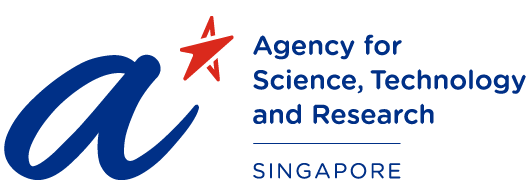Exploring the underlying molecular mechanisms of maternal micronutrient supplementation on maternal and child health
-
Programme:
A*STAR Graduate Scholarship -
Research Area:
NA -
Research Institute:
Institute for Human Development and Potential (IHDP)
Project Description
Micronutrient supplementation is very common in obstetric populations, particularly for those in high income countries. However, clear evidence of the beneficial effects of micronutrient supplementation on maternal and child outcomes remains sparse due to poor understanding of the underlying biological mechanisms.
This project aims to establish the potential underlying mechanisms by which specific micronutrients impact the outcomes of interest. With access to comprehensive and longitudinal datasets from various observational mother-child cohorts and randomised clinical trials of maternal micronutrient supplementation, the detailed relationships of specific micronutrients with maternal and child health outcomes in domains such as cardiometabolic health and mental health can be determined. Furthermore, matched multi-omic data (eg. genetics, transcriptome, metabolome) from these datasets can be capitalised on to identify the possible underlying molecular mechanisms by which these micronutrients impact maternal and child health. These mechanisms could be further investigated through a range of laboratory techniques including molecular biology to investigate gene expression changes, in vitro cultures for functional analysis and LCMS to analyse metabolites.
Understanding the underlying mechanisms involved will provide valuable insights in developing tailored maternal micronutrient supplementation protocols to maximise beneficial outcomes in specific populations and inform public health policies on maternal nutrition to optimise maternal and child health.
This project aims to establish the potential underlying mechanisms by which specific micronutrients impact the outcomes of interest. With access to comprehensive and longitudinal datasets from various observational mother-child cohorts and randomised clinical trials of maternal micronutrient supplementation, the detailed relationships of specific micronutrients with maternal and child health outcomes in domains such as cardiometabolic health and mental health can be determined. Furthermore, matched multi-omic data (eg. genetics, transcriptome, metabolome) from these datasets can be capitalised on to identify the possible underlying molecular mechanisms by which these micronutrients impact maternal and child health. These mechanisms could be further investigated through a range of laboratory techniques including molecular biology to investigate gene expression changes, in vitro cultures for functional analysis and LCMS to analyse metabolites.
Understanding the underlying mechanisms involved will provide valuable insights in developing tailored maternal micronutrient supplementation protocols to maximise beneficial outcomes in specific populations and inform public health policies on maternal nutrition to optimise maternal and child health.
Learning Outcomes
NA
Roles & Responsibilities
NA
Pre-requisites
NA
FAQs /scholarships/home/faqs
For NSS BS: When can I start applying for the scholarship?
Application for the NSS (BS) commences on 1 July every year and closes on 1 March of the following year.
Shortlisted applicants will be interviewed between March and May.
Shortlisted applicants will be interviewed between March and May.
Do I need to secure a place at an overseas university before applying for the scholarship?
No, you may apply for the scholarship even if you have not secured admission to any university yet.
Please note that you should only accept a university offer after obtaining A*STAR’s approval for your choice of university and course of study.
Please note that you should only accept a university offer after obtaining A*STAR’s approval for your choice of university and course of study.
